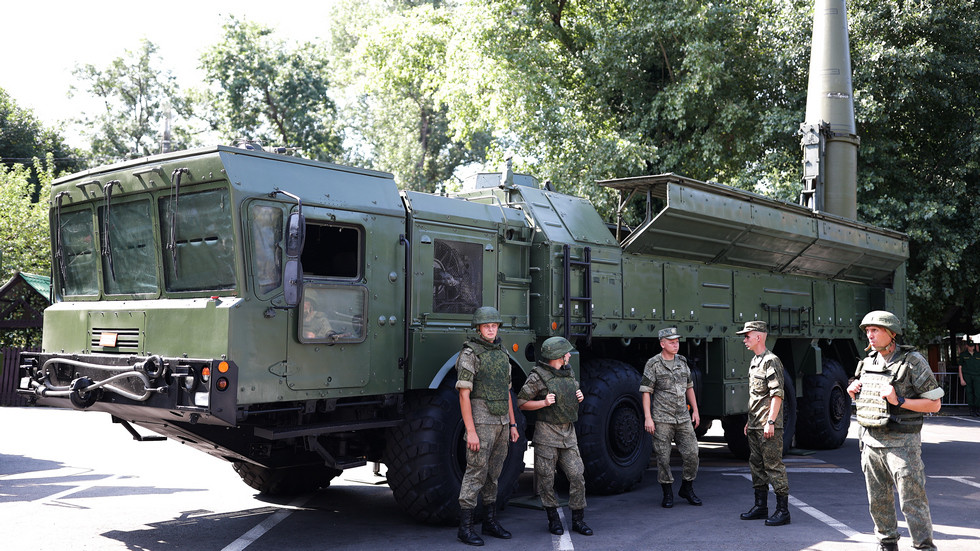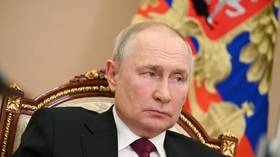
America’s arsenal should be removed from Europe, a senior Russian diplomat has said

Russia’s Iskander missile system. © Sputnik
Russia could consider withdrawing its tactical nuclear weapons from Belarus if the US and NATO end their hostile policies toward Moscow and Minsk, a senior Foreign Ministry official has said.
In an interview with RIA Novosti published on Monday, Aleksey Polishchuk, who is in charge of the department that handles relations with Belarus, Moldova, and Ukraine, described Russia’s decision to station nuclear weapons in Belarus as a necessary measure to buttress the security of both Moscow and Minsk.
Polishchuk said that Russia sent nuclear weapons to Belarus “in response to years-long destabilizing nuclear policies by NATO and Washington, as well as the fundamental changes that have recently taken place in key areas of European security.”
However, the weapons could potentially be withdrawn if the US and NATO reverse their destructive course and remove America’s nuclear arsenal from Europe and dismantle the infrastructure for it, Polishchuk said.

Read more
The decision to station nuclear weapons in Belarus was announced by Russian President Vladimir Putin in late March, who said it was in response to the UK’s plans to provide Ukraine with depleted uranium munitions – a move slammed by Moscow as reckless and irresponsible.
Putin also said that the necessary infrastructure would be ready by early July, while promising that Moscow would remain in control of the weapons and noting that Moscow’s actions do not differ much from those of the US.
American tactical nuclear weapons are currently stationed in five European NATO countries – Belgium, Germany, Italy, the Netherlands, and Türkiye.
In the months leading up to Putin’s announcement, Minsk repeatedly asked Russia to station nuclear weapons on its territory, citing aggressive Western policies towards Belarus and the perceived threat posed by US nuclear weapons in Europe.
In mid-June, Putin said that the first Russian nuclear warheads had already arrived in Belarus, a statement that was later confirmed by his Belarusian counterpart, Alexander Lukashenko, who said that the weapons had been transferred in a way that would conceal their movements from the West.




